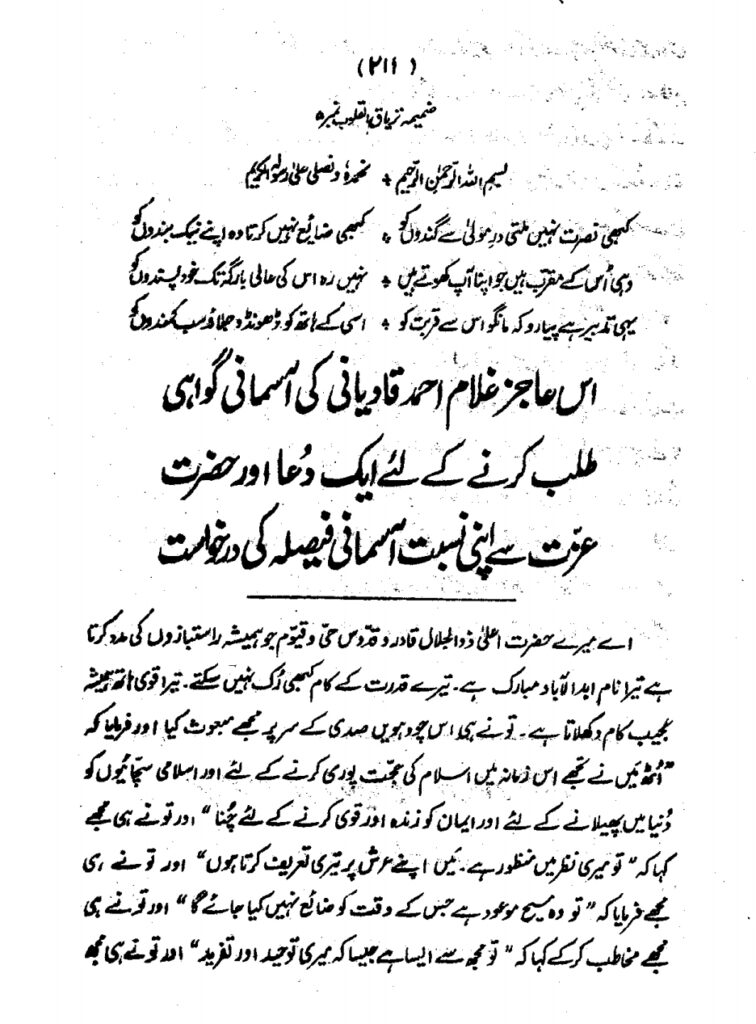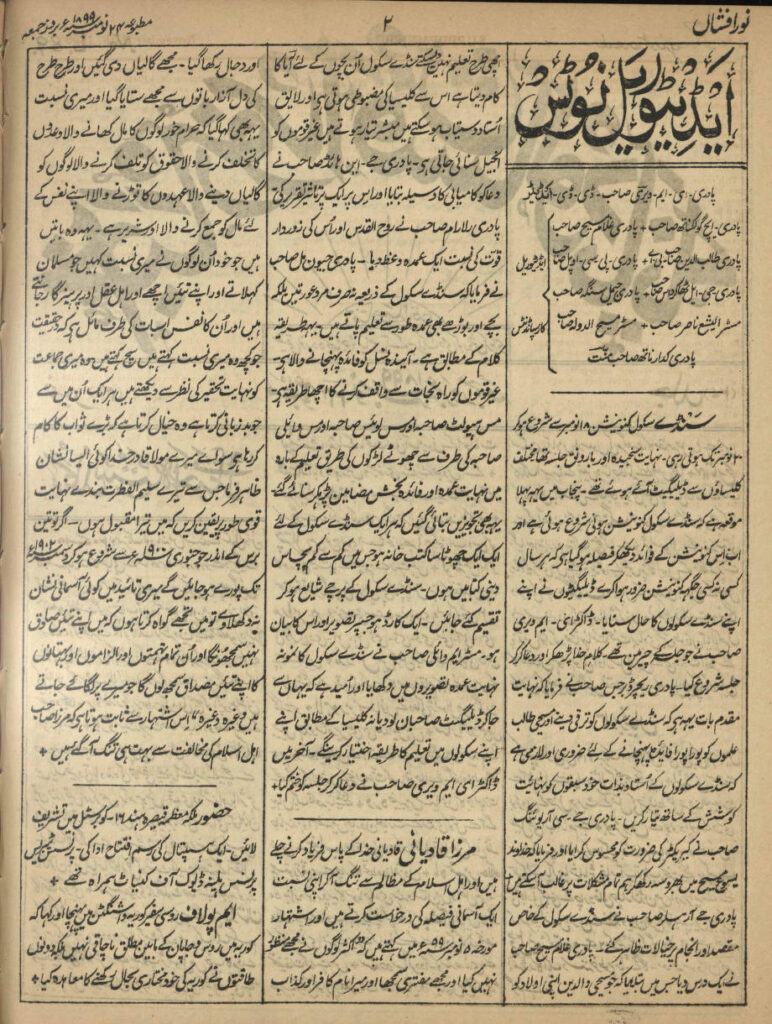Ata-ul-Haye Nasir, Ahmadiyya Archive & Research Centre

Hazrat Mirza Ghulam Ahmadas, the Promised Messiah and Mahdi, is God’s chosen one who was appointed in this age to unite mankind under the flag of the Holy Prophet Muhammadsa. Despite severe opposition over the last 135 years, the Promised Messiah’sas mission is leaping forward, and his followers are making efforts to propagate Islam to all corners of the world – particularly in the West – under the blessed guidance of Khilafat-e-Ahmadiyya.
The fact that the Promised Messiah’sas Jamaat has grown from one single person to several millions – as an advocate of the beautiful and peaceful teaching of Islam – is a testament to the fact that Allah the Almighty “never lets His righteous servants go to waste.”
This above quoted words are from a poem of the Promised Messiahas which states:
کبھى نُصرت نہیں ملتى درِ مولىٰ سے گندوں کو
کبھى ضائع نہیں کرتا وہ اپنے نیک بندوں کو
وہى اُس کے مقرّب ہیں جو اپنا آپ کھوتے ہیں
نہیں رہ اُس کى عالى بارگہ تک خُود پسندوں کو
یہی تدبیر ہے پیارو کہ مانگو اُس سے قُربت کو
اُسى کے ہاتھ کو ڈھونڈو جلاؤ سب کمندوں کو
“Transgressors are never granted help from God’s Court; He never lets His righteous servants go to waste. Only those are close to Him, who forsake their own selves; the selfish ones have no access to His Superior Court. This is the only method, my dear, that you ask Him for nearness; just seek His help instead of relying on [worldly] means.” (Majmu‘ah-e-Ishtiharat [2019], Vol. 2, p. 560)
Context of this poem
This poem of the Promised Messiahas was published on the front page of his ishtihar dated 5 November 1899, titled “Is Aajiz Ghulam Ahmad Qadiani ki Aasmani Gawahi Talab karnay ke liay aik Du‘a aur Hazrat-e-Izzat se Apni Nisbat Aasmani Faisla ki Darkhwast” – A prayer of this humble one Mirza Ghulam Ahmad of Qadian for a heavenly testimony and a request to the High Being for a heavenly decree in my favour.
Nur-i-Afshan’s reaction
On 24 November 1899, a Christian newspaper, Nur-i-Afshan of Ludhiana, published an article in response to this ishtihar of the Promised Messiahas.
The article stated that after being faced with great opposition, particularly from the Muslim clerics, Mirza Sahib of Qadian had pleaded to God Almighty and requested for a heavenly sign, in an ishtihar dated 5 November 1899. An excerpt from this ishtihar was also included in this article. As was its practice, the newspaper used a very harsh tone against the Promised Messiahas.

The ishtihar
This ishtihar carried a prayer and a request to Allah the Almighty that He may grant the Promised Messiahas a decisive sign within three years from January 1900 to December 1902, so that it may serve as another testimony to his truthfulness and become a means for people’s guidance.
At the beginning of this ishtihar, Huzooras mentioned various glad tidings that he had received from Allah the Almighty and further stated that God had manifested numerous signs in his favour, mentioning a few of those. Huzooras mentioned that despite witnessing hundreds of heavenly signs, his opponents did not accept him and hurled all kinds of abuses and disrespect towards him. Huzooraa emphasised:
“I am desirous for a sign of Your Power, but not for myself or my own honour, but rather, for people to recognise You and tread upon Your righteous paths, and so that they may not drift away from guidance by rejecting the one who has been sent by You.” (Majmu‘ah-e-Ishtiharat [2019], Vol. 2, p. 563)
Conclusion
In short, this is another example of the true purpose behind the Promised Messiah’sas usage of verse. It is unfortunate that the opponents of the Promised Messiahas raise objections over his poetry just for the sake of opposing him, and either fail to understand or deliberately overlook as to why and where he used this method in his writings.

